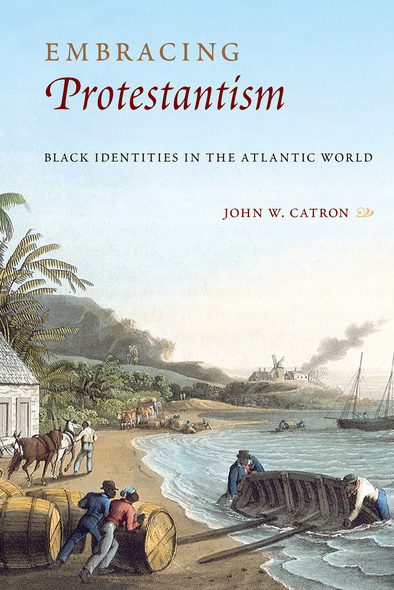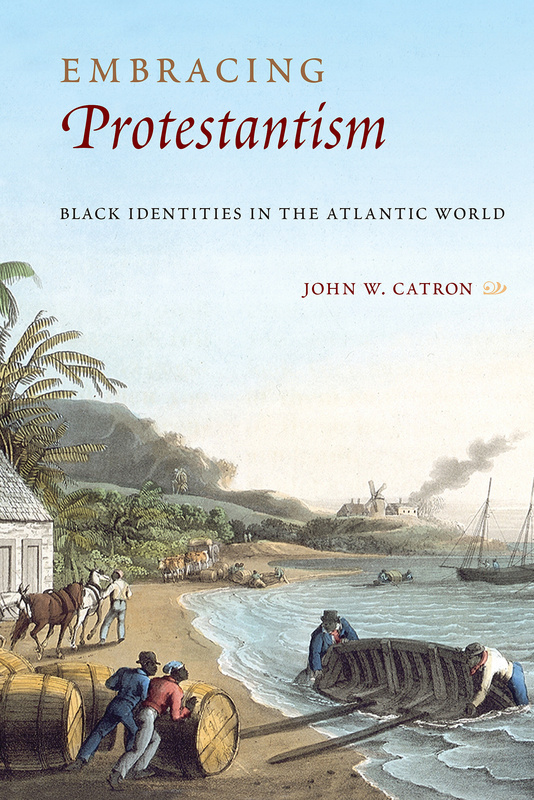Our shopping cart is currently down. To place an order, please contact our distributor, UTP Distribution, directly at utpbooks@utpress.utoronto.ca.
Embracing Protestantism
Black Identites in the Atlantic World
“The first study to consider, on a circum-Atlantic scale, how conversion to Afro-Protestant Christianity encouraged a ‘middle path’ between exclusionist ethnic African identities and deracinated Atlantic creole identities.”—Douglas B. Chambers, author of The Igbo Diaspora in the Era of the Slave Trade
In Embracing Protestantism, John Catron argues that people of African descent in America who adopted Protestant Christianity during the eighteenth century did not become African Americans but instead assumed more fluid Atlantic-African identities. America was then the land of slavery and white supremacy, where citizenship and economic mobility were off-limits to most people of color. In contrast, the Atlantic World offered access to the growing abolitionist movement in Europe.
Catron examines how the wider Atlantic World allowed membership in transatlantic evangelical churches that gave people of color unprecedented power in their local congregations and contact with black Christians in West and Central Africa. It also channeled inspiration from the large black churches then developing in the Caribbean and from black missionaries. Unlike deracinated creoles who attempted to merge with white culture, people of color who became Protestants were “Atlantic Africans,” who used multiple religious traditions to restore cultural and ethnic connections. And this religious heterogeneity was a critically important way black Anglophone Christians resisted slavery.
John W. Catron is an independent scholar living in Gainesville, Florida.





